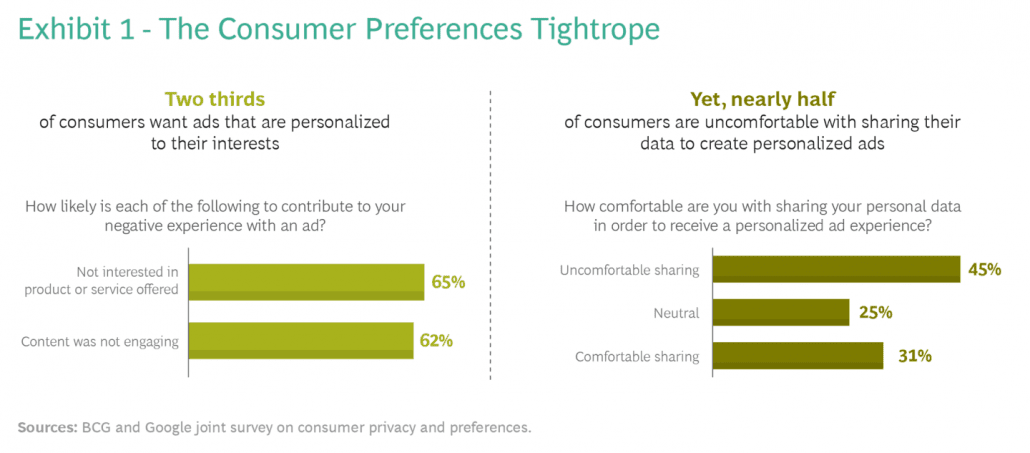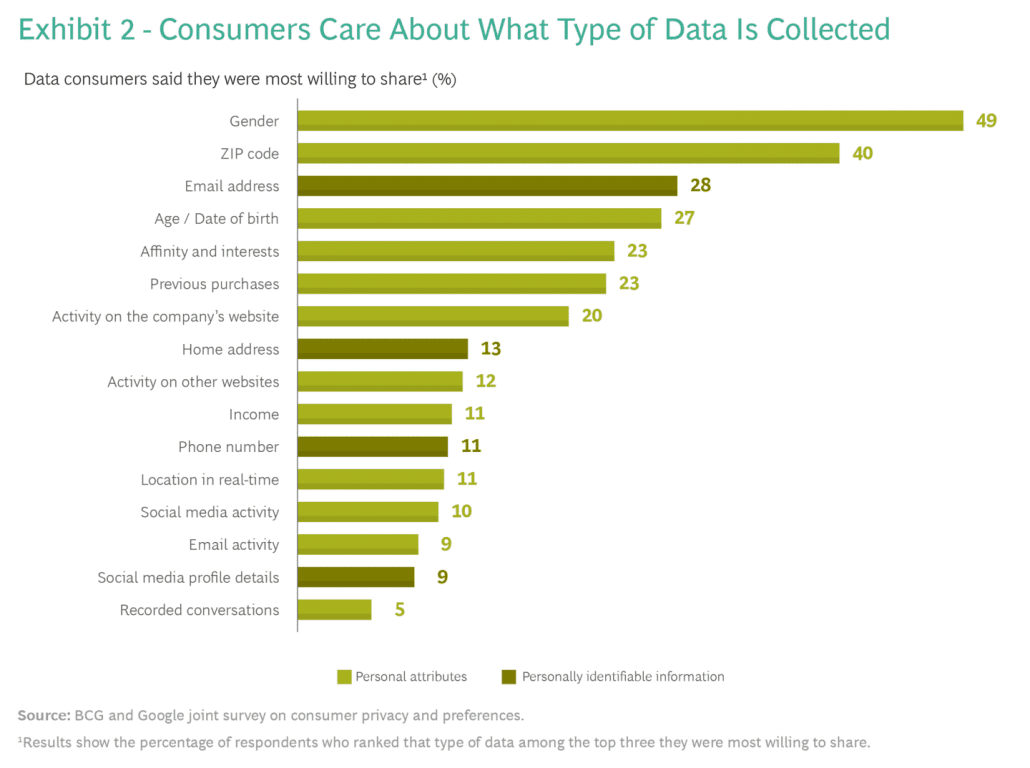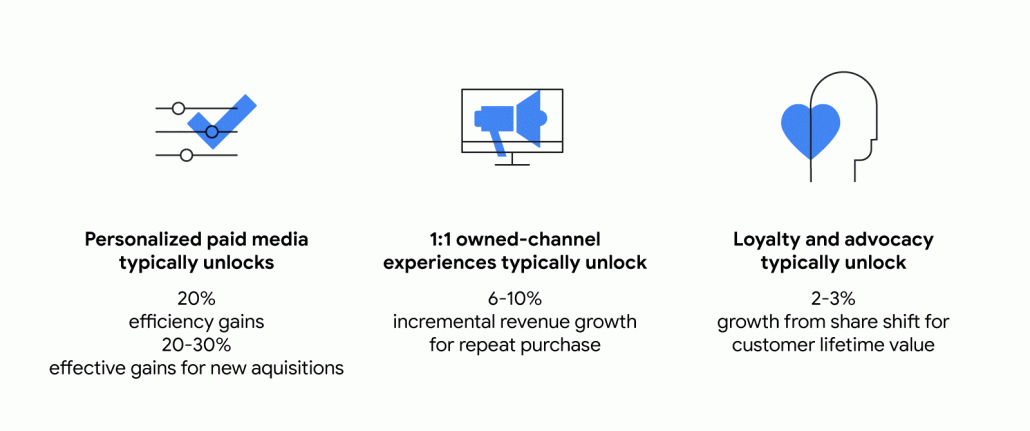A new study conducted by Google and Boston Consulting Group indicates that 90% of consumers are willing to give brands their email addresses, so long as there is an incentive.
The results come from an exploration into how consumers view modern advertising, including targeted ads, sharing personal information with advertisers, and email marketing.
As online advertising has become more pervasive and personalized to consumers, it is widely believed that shoppers have become jaded and worn down by online ads. As such, many believe shoppers are generally unwilling to engage with online advertisers. However, this study refutes this idea quite clearly.
Instead, the findings show that modern consumers are quite willing to engage with ads on the condition that they are relevant to their needs and interests.
How Consumers View Targeted Ads

First and foremost, the new research makes it clear that advertisers do not dislike all advertising. They dislike irrelevant advertising, with 65% of people saying they have negative experiences with ads that are not relevant. Additionally, 74% of consumers say they only want ads that are relevant.
These consumers are also largely aware that receiving ads that are targeted to their interests requires some amount of data sharing.
According to Google’s research, most consumers are willing to share some personal information, so long as it is not overly invasive.

At the same time, some demographics are more willing to share specific details such as their gender, age, or online activity compared to other groups.
For example, Young Urban Professionals tend to be more willing to share their social media activity, but less willing to tell advertisers their gender.

When consumers’ concerns are addressed, users may be even more willing to share personal details. These concerns include what specific information is being collected, how an advertiser is collecting this information, and what they intend to use it for.
How Incentives Increase Data Sharing
Another major concern advertisers need to address is “what’s in it for me?”

While nearly 1 in 3 consumers say they are willing to give out some personal information such as their email address for absolutely nothing, more than 90% say they are willing to give their email address if given the right incentive – such as a discount or free sample.
Not only does an incentive simply give a person a reason to sign up, but it also gives a brand an opportunity to prove themselves to shoppers and earn their trust.

This is crucial for brands because at least 29% of new customers say they start from a place of mistrust with all companies from any industry. Why? Because they are concerned that brands will then sell their private information to less scrupulous marketers.
As Google’s report explains:
“And while almost 60% of customers believe that companies are selling their data, our research found that very few brands do that.
Marketers understand the value of data and the trust their customers place in them — and how customer-centric, data-driven marketing unlocks significant gains across business objectives.”
Key Takeaways
Google’s report concludes with three major recommendations based on the study’s findings:
- Build trust by prioritizing transparency
- Create great experiences through first-part data
- Build a data-centric organization that respects privacy at all levels
For more in-depth information, read the full report from Google here or from Boston Consulting Group here.



